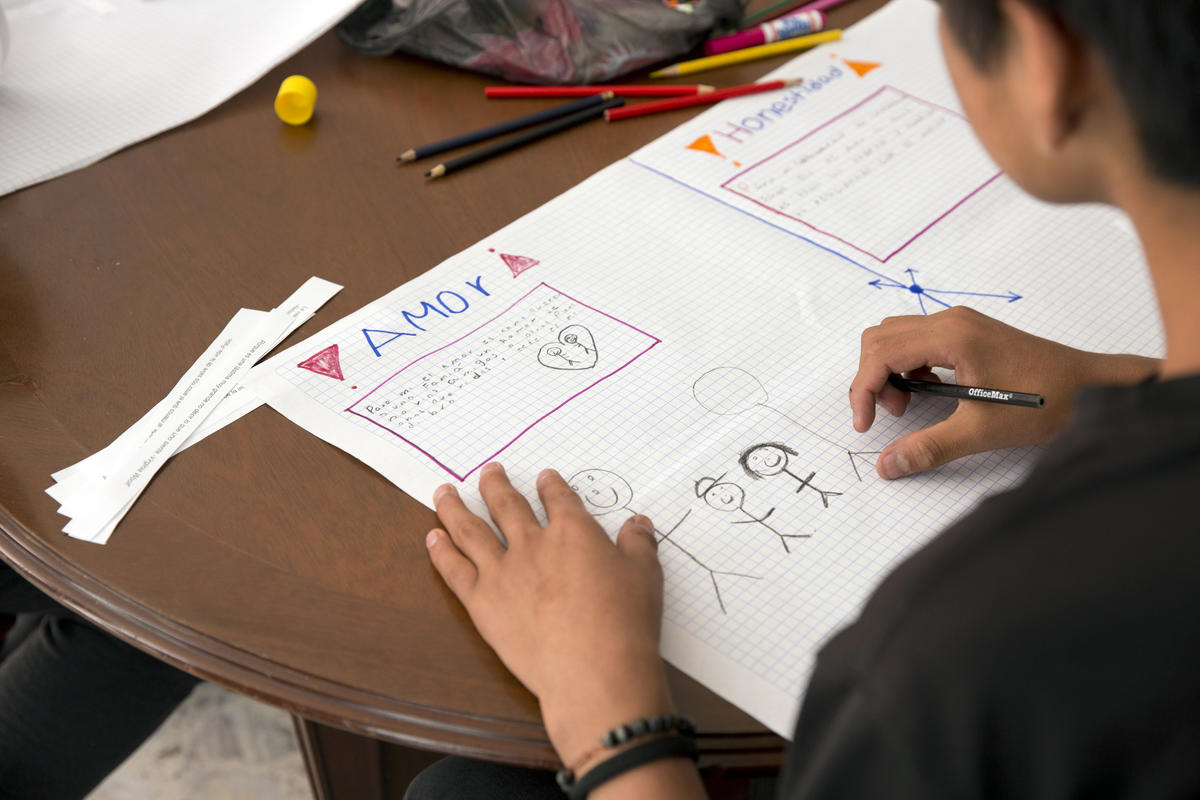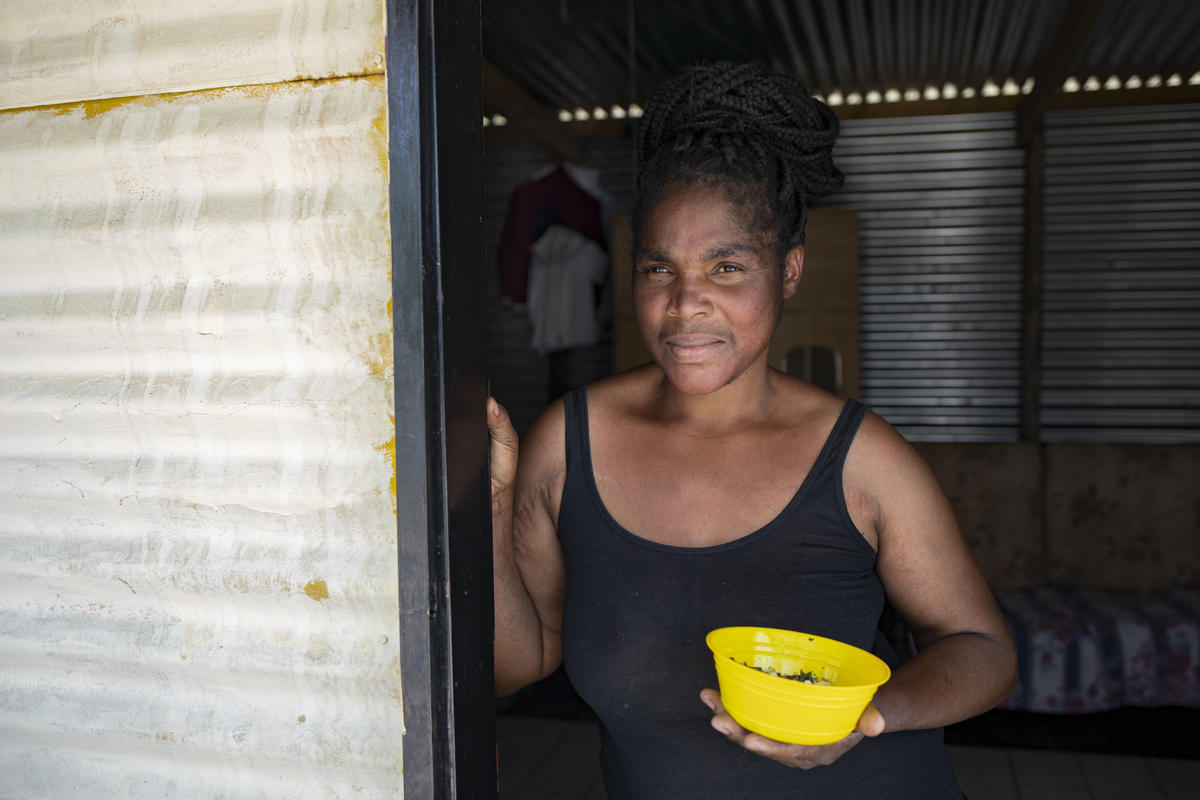UNHCR funds crèche course in caring for refugee tots in Durban
UNHCR funds crèche course in caring for refugee tots in Durban

DURBAN, South Africa, April 13 (UNHCR) - The sound of children laughing and singing echoes through the dark corridors and the stairwell of a dilapidated eight-storey residential block in central Durban.
The babble of happiness, which seems out of place in such a dreary place, is coming from an apartment on the fifth floor, where visitors are warmly welcomed by a small group of excited youngsters aged between two and six years old.
This is a crèche with a difference - one of 51 so-called "home-base care" centres set up around the coastal city to help refugees with children. Funded by UNHCR and Oxfam Australia, these centres both protect young refugees while their parents work and provide employment to women like Odette Mulongo, from the Congolese province of Katanga, who lives in the lively fifth-floor flat.
Under South African law, refugees enjoy many of the rights of the country's citizens, including the right to travel, to education and to earn a living. But taking up employment is a challenge for those with children in an urban environment.
"We realized that there was a huge child protection issue. Parents needed to go to work and their very young children were being left at home, sometimes alone, since they had no place to leave them," explained Yasmin Rajah, director of Refugee Social Services (RSS), which implements the project.
The RSS, accordingly, launched a pilot home-base care (HBC) project in 2007 and this was expanded the following year. It started by inviting refugee women who were interested in child care to apply for places on an 18-week training programme, including lessons on child safety and early childhood development. To date, some 70 of the most vulnerable women have been trained.
Those who passed were advised on how to maximise the space in their humble apartments to create a crèche for a maximum of six children and also given a start-up kit, including colourful plastic chairs and tables, ingredients for play dough, crayons, markers and paper goods.
Parents must pay fees of between US$40 and US$50 a month for each child left with the carers. They are also asked to help keep costs down by providing items such as tissues for their infants as well as some foodstuff. Some lower income South African families are also benefitting from the programme.
Many of the parents work odd hours, but because the HBCs are in their apartments, it's much easier for parents to pick them up their children when they finish their shift and go home at night or early in the morning.
At the crèche run by Odette Mulongo, a 24-year-old Burundian refugee drops off her 15-month-old son at three in the afternoon. She will be back to pick him up around midnight, after finishing her work as a waitress.
"If it weren't for Odette, I don't know what I would do," she told UNHCR visitors. "Sometimes, when I am short of money, she even lets my son stay here for free," added the grateful woman.
Another care centre manager, Jeannette Kasongo, a refugee from the Democratic Republic of the Congo, said the programme had really helped her. Before joining, she used to make ends meet by selling small items on the streets of her neighbourhood. The 39-year-old said she had to take her infant daughter with her because she could not afford to pay for day care.
But now she earns more than she did as a street trader and also gets to stay at home with her daughter. What's more, she's learned a lot about child care. "Before, if a child was sick, I would think just to give him some medicine. Now, I know to contact the parents to request permission and make sure that the child is not allergic to any medicine."
Yasmin Rajah says the home-base care centres fill a niche. "We have found that the overall environment for the children has improved and the women who are enrolled in the programme are truly committed to doing a good job. "
By Tina Ghelli in Durban, South Africa








